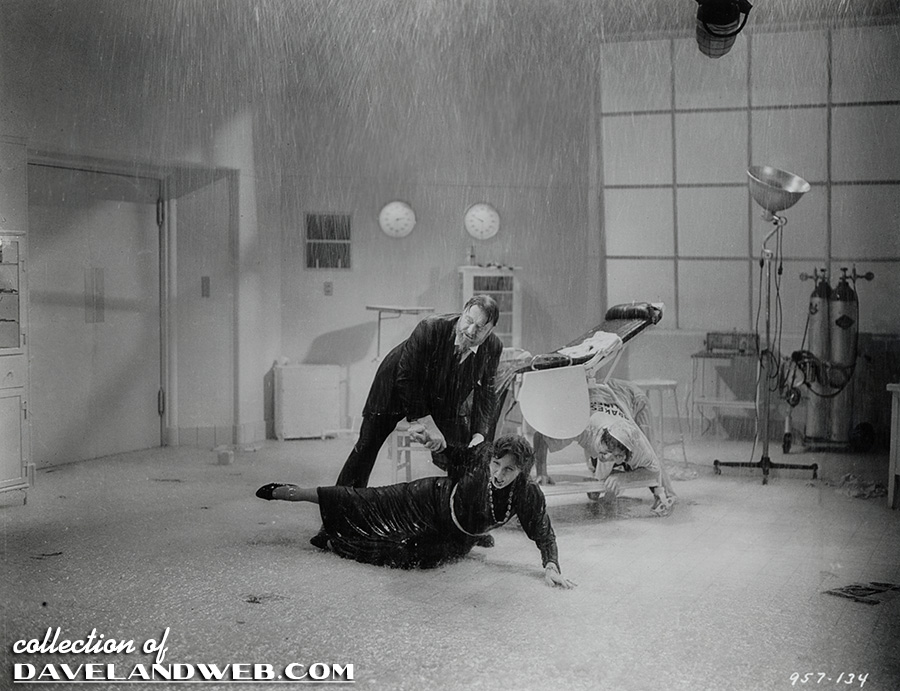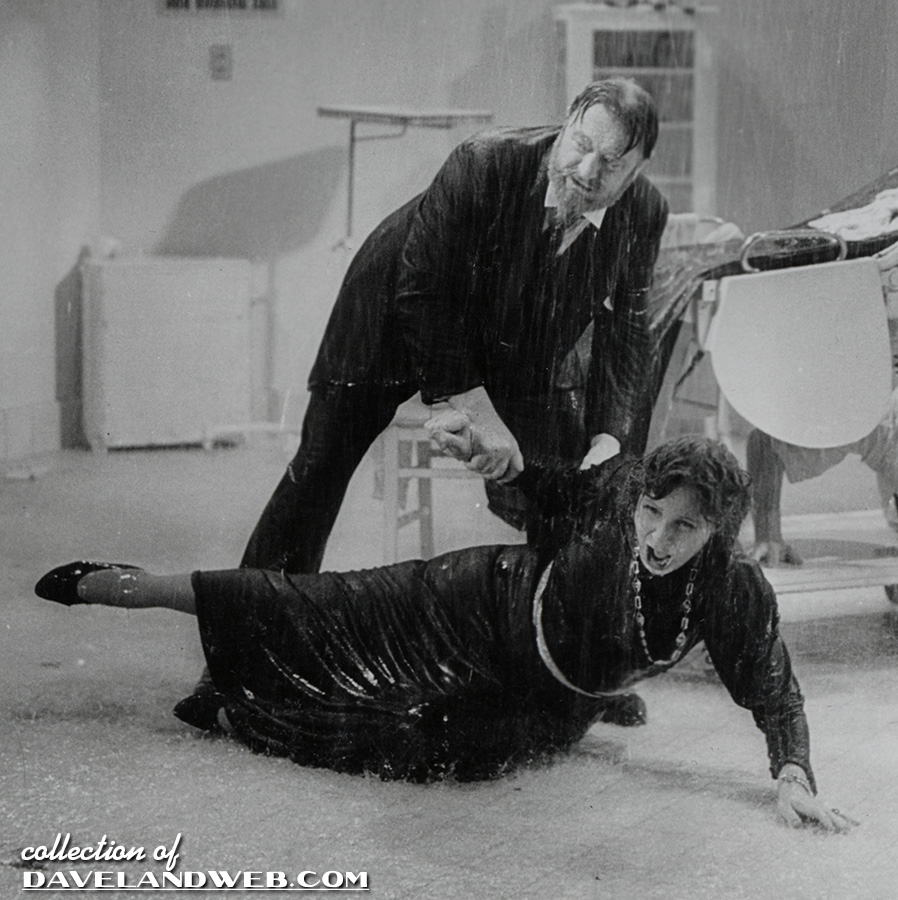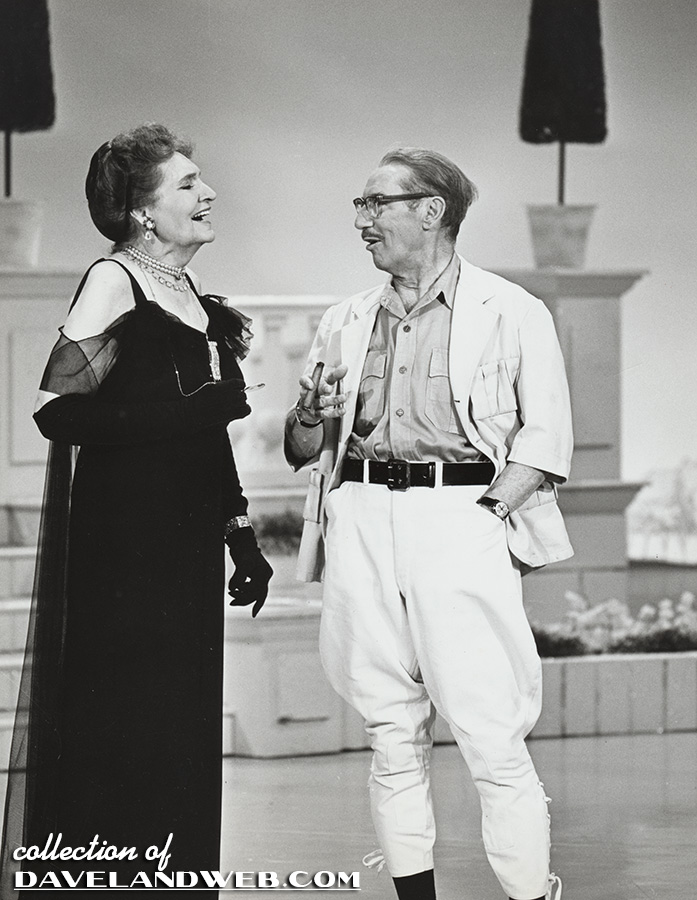
I recently discovered the book Straight Lady (2022), by Chris Enss and Howard Kazanjian. I was so excited to see that a book had been written on Margaret Dumont, one of the greatest straight women in motion pictures and also known as the fifth Marx Brothers. Always the haughty dowager, she lent an air of dignity that provided the perfect counterpart for the zaniness of Groucho and his brothers. Sadly, the book was a supreme disappointment. Other than some brief new information on Margaret’s early (and somewhat scandalous!) life, the book is more about the career of the Marx Brothers than any new info on the comedienne. Fraught with errors, the level of writing rarely progresses beyond that of a high school report. It also appears that the level of research done was low; vintage newspaper articles seem to supply most of the semi-interesting information. Margaret deserved much more. To rectify this situation, today’s post celebrates Margaret Dumont with photos from my collection. From an interview at the time of the release of “A Night at the Opera” (1935):
I was a bit dubious about the Marx Brothers when Sam Harris asked me to play opposite them in “The Cocoanuts” (1929), and I’ll have to admit truthfully that I’m still dubious. Sam told me that the Marx Brothers needed an actress who could learn the art of playing straight, someone with dignity and poise to act as legitimate dramatic balance for their comedy. Naturally I considered Sam’s proposal a compliment and the chance to appear with the Marx Brothers a real opportunity. What Sam didn’t tell me nearly caused me to suffer a nervous breakdown after three weeks as Groucho’s leading lady. He pushed me out of windows, pulled chairs out from under me, broiled steaks in the fireplace of my apartment, put frogs in my bathtub, and made my life miserable in general on the stage and off. I don’t regret a minute of it. Everything the Marx Brothers do comes under the heading of good, clean sport. They are the best friends I have.
A classic scene between Margaret and Groucho from “Duck Soup” (1933):

Margaret bristled whenever she was referred to as a “stooge”:
It has been amusing, as well as profitable, to be associated with the Marx Brothers, but please don’t refer to me as their stooge. Leading lady, yes, but stooge—it’s a terrible word, isn’t it?
“A Night at the Opera” (1935) was the first MGM film for the Marx Brothers. Both Groucho and Sig Ruman are fighting for the affections (and millions) of Margaret’s widowed character, Mrs. Claypool.

If you aren’t convinced that Margaret was a good sport (both on and off screen with the Marx Brothers), this scene from “A Day at the Races” (1937) is proof.

That’s not a stunt double; that’s Margaret herself. Already in her fifties, she was a great sport and did most of her own stunts. She never knew what the brothers were going to do next; regardless, she kept a straight face and went along with their hijinks.

Margaret also worked with W.C. Fields…twice. Her first movie was “Never Give a Sucker and Even Break” (1941). From an interview that she gave at time, she discusses just how much work into being a “straight woman”:
Many a comedian’s lines have been lost on the screen because the laughter overlapped. Script writers build up to a laugh, but they don’t allow any pause for it. That’s where I come in. I ad-lib—it doesn’t matter what I say—just to kill a few seconds so you can enjoy the gag. I have to sense when the big laughs will come and fill in or the audience will drown out the next gag with its own laughter.

Check out those eyebrows! Her character’s name was Mrs. Hemoglobin, the mother of a very beautiful young girl (Susan Miller). Of course, Mrs. Hemoglobin is very wealthy…but also disgusted with men. As she warns her daughter:
Men. Men. They're all alike. They'll deceive you as your father did me. He kissed a chorus girl and when I found out he said, ‘Oh, I was drunk and didn't know what I was doing.’
Her daughter wonders if Fields drinks, too. To that, Dumont’s character imperiously replies:
He didn't get that nose from playing ping-pong.

Fields attempts to woo the resistant Mrs. Hemoglobin, but in the end, leaves her alone at the altar.

Surprisingly, not a word is written about the deleted sequence Dumont filmed with Fields for “Tales of Manhattan” (1942).

The book does mention Dumont’s “role” in “Auntie Mame” (1958):
In mid-1958, Margaret landed a plum role in the Warner Bros. television version of “Auntie Mame” starring opposite Academy Award-winning actress Rosalind Russell.…The veteran actress would portray an arrogant British noblewoman in the Technirama, technicolor show based on the long-running Broadway stage hit.
“Aunt Mame” was a movie, not a TV show. As for the “plum role,” it was an uncredited part. Unless you know to look for Dumont, there is a good chance you would miss her.
Dumont’s final gig was on The Hollywood Palace, which aired on April 17, 1965. She was reunited with Groucho and the two performed a reprise of the “Hooray for Captain Spaulding” sketch, from their 1930 comedy “Animal Crackers.”

Here is a clip from their sketch:
Groucho paid homage to Dumont at the 1974 Oscars ceremony, but managed to get in an untrue dig that has unfortunately been taken to be the truth:
She was a great straight woman for me, even though she never understood my jokes.
Dumont understood every one of the gags; there is no way she could have reacted and given pause the way that she did.
Here’s to Margaret and hopes that one day, someone will do a proper bio of her.
See more Margaret Dumont & the Marx Brothers photos at my main website.

Thanks for sharing that clip, it's neat to see the original segment from Animal Crackers then compare it to the redux sketch decades later. ( Monthy Python was good at that. ) Dumont was an unsung heroine/foil to all of those, the Carole Cleveland of the generation before mine. That book sounds like a tragedy which is a shame since it sounds like only a modicum of basic research could have revealed most. Everyone is going for the quick buck, they've got the publicist and printer lined up before the content is begun.
ReplyDeleteGreat pictures and a shame about the book. It's a fine art being the straight man, and often an overlooked one. The comparison above to Carole Cleveland is apt. Wasn't Margaret the only costar who called the brothers by their real names? I think that must have been a sign of affection.
ReplyDeleteBryan - I admit I had to look up Carol Cleveland, which shows I lack Monty Python knowledge!
ReplyDeleteMelissa - I would answer your question about Margaret using their real names, but the book didn't cover that either, from what I remember!
The clip was a joy to watch. But I must say it sointently was the most rediculus this I've even hoid.
ReplyDeleteCompletely agree on this book. What a disappointment, and a real injustice to an important figure.
ReplyDelete